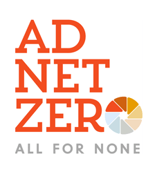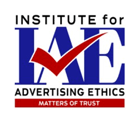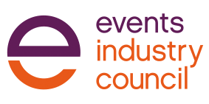by Kristina Meinig, VP, Market Development

The year 2050 might seem far off, but it’s not when it comes to implementing initiatives to enact global environmental change. The Paris Agreement established 2050 as the target for achieving net zero carbon emissions, and many countries are developing policies and regulations to reach this goal.
As a result, businesses are facing increasing pressure to become more transparent about their environmental impact. This includes media and advertising where eye opening stats about carbon emissions in programmatic advertising make headlines.
The good news is that the industry is working together to create standards and best practices to reduce emissions in advertising. Here’s a quick update on what’s in the works and the outlook for the industry.
Media Sustainability
 One group leading the way is Ad Net Zero. This global organization is mobilizing advertisers and agencies to enact a five-point plan to transition to net zero carbon emissions. The group has called upon its 200+ supporters including brands, agencies and tech companies to set mandates by June. AAM recently joined Ad Net Zero to lend our expertise to discussions about creating industry standards and implementing assurance solutions to the process to increase transparency. The group’s Global Media Sustainability Framework provides standards for measuring emissions, which includes guidelines on increasing data transparency.
One group leading the way is Ad Net Zero. This global organization is mobilizing advertisers and agencies to enact a five-point plan to transition to net zero carbon emissions. The group has called upon its 200+ supporters including brands, agencies and tech companies to set mandates by June. AAM recently joined Ad Net Zero to lend our expertise to discussions about creating industry standards and implementing assurance solutions to the process to increase transparency. The group’s Global Media Sustainability Framework provides standards for measuring emissions, which includes guidelines on increasing data transparency.
IAB Tech Lab also enacted a plan to reduce the carbon impact of digital advertising by collaborating with several industry partners including Ad Net Zero. IAB Tech Lab’s Green Initiative aims to reduce emissions through supply path optimization. Limiting supply paths and simplifying tech stacks to reduce extra steps in the supply chain help decrease a campaign’s carbon footprint.
Greenwashing
 As companies increasingly use environmental claims in their messaging, there is growing scrutiny to ensure that these claims are not misleading or exaggerated—a practice known as greenwashing.
As companies increasingly use environmental claims in their messaging, there is growing scrutiny to ensure that these claims are not misleading or exaggerated—a practice known as greenwashing.
The Institute for Advertising Ethics (IAE) promotes ethical practices and integrity in advertising. IAE recently created IAE Green Shield, a program that addresses greenwashing through education to improve the integrity of environmental advertising. IAE Green Shield also includes a certification program for advertisers to showcase their efforts in improving transparency. I am a member of the IAE Climate Consortium (IAECC), a group that works collectively to increase transparency in climate communications.
Sustainable Events
 There are a few industry programs developed to certify companies committed to event sustainability best practices.
There are a few industry programs developed to certify companies committed to event sustainability best practices.
The Event Industry Council (EIC) developed its Sustainable Events Standards to provide validation for organizers and venues to demonstrate that they have processes in place to minimize their events’ emissions. AAM is an approved auditor for EIC as well as ISO Management Systems Certifications 14001 and 20121 to integrate sustainability into management practices. AAM is also a supporter of Net Zero Carbon Events, an industry initiative created to address the impact of events on climate change.
It’s an exciting time to collaborate with so many groups dedicated to making a difference in reducing the industry’s environmental impact. AAM is proud to provide our insights relating to developing industry standards and implementing programs to increase transparency. By working together, the industry can make a difference on a global issue that extends beyond media and advertising to impact everyone.








